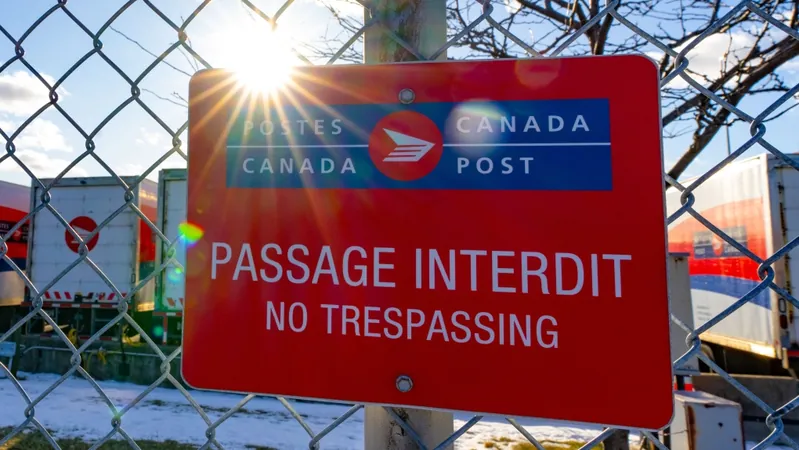
Tackling Air Pollution and Soil Degradation in Africa: Urgent Solutions Needed!
2024-12-23
Author: Emma
The State of Air Pollution in Africa
Air pollution is one of the leading environmental health risks worldwide, causing one of every nine deaths globally. In Africa, this translates to over 400,000 premature deaths each year, many of which are linked to dust storms exacerbated by land degradation, deforestation, and desertification. With approximately two-thirds of Africa consisting of deserts and drylands, these environmental issues pose great risks to both urban and rural populations.
Sources of air pollution in Africa—including deforestation, agricultural emissions, and dust from degraded lands—affect entire regions, leading to a cycle of environmental decline. The nature of air pollution knows no borders; it spreads across nations, presenting considerable challenges for individual countries aiming to manage their air quality.
The Vicious Cycle of Pollution and Degradation
Degraded lands often release dust and pollutants that further compromise air quality, creating a reciprocal relationship where poor air quality accelerates soil degradation and desertification. To disrupt this damaging cycle, it is essential to adopt a holistic approach that combines sustainable land management with effective air quality governance.
Need for Coordinated Action
The recent 10th Special Session of the African Ministerial Conference on the Environment (AMCEN) highlighted the critical need for coordinated regional efforts to combat these interconnected issues. Alone, individual countries may find it challenging to tackle air pollution and land degradation; however, collective action can drive significant progress.
To assist these efforts, UNEP has introduced a guide on Ambient Air Quality Legislation, aiming to support countries in strengthening their national air quality governance frameworks. This guide stresses the importance of robust governance, cross-sector collaboration, and the establishment of actionable standards for air quality to address both immediate pollution sources and long-standing challenges associated with land degradation.
National and Regional Legislative Efforts
Implementing strong national air quality legislation is pivotal. This involves enforcing stringent emission controls and advocating sustainable land use practices while investing in efficient monitoring systems. Given that pollutants do not adhere to political boundaries, international cooperation and cross-border agreements are vital.
Cote d’Ivoire is currently at the forefront of these efforts, collaborating with UNEP to align its domestic air quality regulations with global best practices. Such initiatives serve as a blueprint for other African countries to design effective and robust environmental policies.
The Path Forward: Integrating Air Quality into Environmental Policy
The integration of comprehensive air quality governance frameworks into national and regional policies is crucial for decreasing pollution levels and mitigating its adverse impacts on land and livelihoods. Prioritizing air quality governance in the wake of the global conference on desertification signifies a pivotal moment for African nations. Timely and decisive action is necessary to ensure a healthier future for all, with an emphasis on leveraging international resources and cooperation.
By championing these initiatives, African countries stand to gain tremendously, not only enhancing public health but also fostering economic growth and resilience. The time is ripe for the continent to pivot towards sustainable solutions that protect both the environment and the well-being of its people. The stakes couldn't be higher—will African leaders take up the challenge?









 Brasil (PT)
Brasil (PT)
 Canada (EN)
Canada (EN)
 Chile (ES)
Chile (ES)
 España (ES)
España (ES)
 France (FR)
France (FR)
 Hong Kong (EN)
Hong Kong (EN)
 Italia (IT)
Italia (IT)
 日本 (JA)
日本 (JA)
 Magyarország (HU)
Magyarország (HU)
 Norge (NO)
Norge (NO)
 Polska (PL)
Polska (PL)
 Schweiz (DE)
Schweiz (DE)
 Singapore (EN)
Singapore (EN)
 Sverige (SV)
Sverige (SV)
 Suomi (FI)
Suomi (FI)
 Türkiye (TR)
Türkiye (TR)